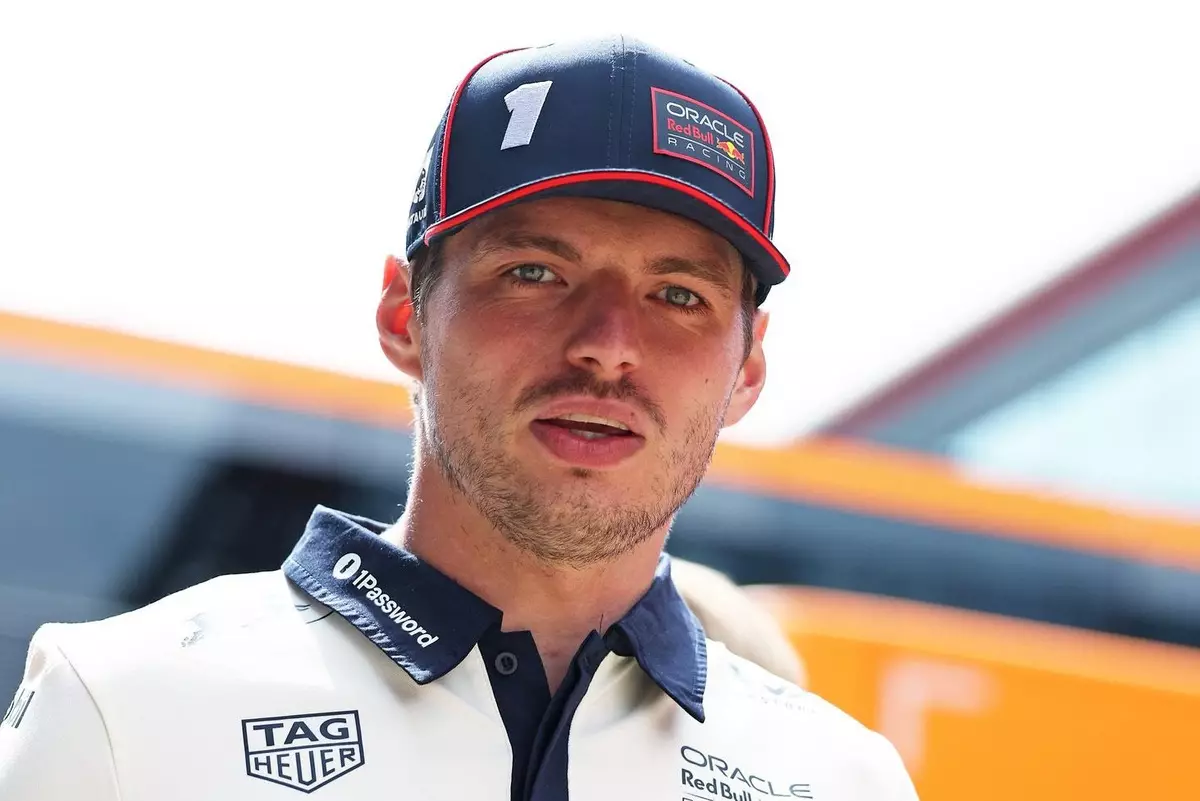In the high-octane sphere of Formula 1, few drivers have mastered the art of silence as effectively as Max Verstappen. His recent media interactions at Silverstone highlight a deliberate choice to remain noncommittal about his future beyond 2025. While the racing world buzzes with speculation and teams scramble to secure their stars for 2026, Verstappen’s reticence seems calibrated, not timid. This stoic silence serves a dual purpose: it staves off distraction and projects an aura of control, emphasizing that his focus is firmly rooted in the present rather than hypothetical futures. In an environment known for relentless media focus and gossip, Verstappen’s calm defiance signals that he’s confident enough to not fall prey to the hype, echoing a broader philosophy of strategic ambiguity.
This approach underlines a fundamental truth: Verstappen understands the power of perception. By withholding clarity on his long-term plans, he positions himself as a master of the narrative, ensuring that he retains maximum leverage in negotiations without appearing desperate or uncommitted. Such a stance could be a subtle form of psychological warfare—forcing teams and rivals to make assumptions that may ultimately work in his favor. His brief, deadpan responses and evasive comments show an athlete who is one step ahead in his strategic calculus.
The Popular Misconception: Is Verstappen Disloyal or Detached?
Many observers seem to misinterpret Verstappen’s reserve as a sign of detachment or even dissatisfaction. This couldn’t be further from the truth. Verstappen’s recent performances and statements reveal an athlete whose primary commitment remains with Red Bull. His firm declaration that he sees no reason to take a sabbatical in 2026 is telling. It indicates a genuine passion for racing and a willingness to continue competing at the highest level, regardless of the shifting regulatory landscape or internal team politics.
The rumor mill also suggests that Verstappen may be toying with the idea of diversifying his racing portfolio, such as participating more in GT3 events, which he recently demonstrated with a class victory at Spa 24 Hours. This diversification isn’t a sign of fading enthusiasm for F1 but rather a strategic move to broaden his racing experience. It reflects a modern, multifaceted approach to his career—embracing different disciplines without abandoning the pinnacle of motorsport.
Critically, Verstappen’s openness to future GT3 pursuits underscores a key insight: his love for racing transcends any single series. He is positioning himself as a versatile driver, not solely defined by his F1 dominance. This multi-dimensional approach could provide him with opportunities for longevity and fulfillment beyond the constraints of F1’s demanding schedule.
The Reality of Uncertainty and His Confidence in Adaptability
One of the most compelling aspects of Verstappen’s outlook is his pragmatic acknowledgment of the unpredictability inherent in F1’s evolving landscape. While other drivers or teams might fall into despair over uncertain regulations and the “unknowns” of 2026, Verstappen embraces the challenge. He recognizes that driving fast is the ultimate equalizer, regardless of machinery or rules. His belief in his own ability and the resilience of his team at Red Bull reinforce an underlying message: expertise and adaptability will determine success, not just the regulations or the hype.
Verstappen’s comments about the fluctuating performance of teams under new regulations reveal an astute understanding of development cycles. His reflection that McLaren’s surprise dominance illustrates how unpredictable the sport can be emphasizes that even the most calculated plans can shift overnight. By framing his strategy within this context, Verstappen demonstrates a realistic, confident mindset that is not rattled by potential upheavals. Instead, he asserts that his focus remains on applying his skills with whatever tools are available—a stance that signals unwavering self-assurance.
Furthermore, his contract with Red Bull is not just a contractual obligation but a declaration of strategic loyalty. His statement that no one can guarantee dominance in 2026 hints at a readiness to face whatever comes next with composure and precision. Verstappen’s attitude—highly focused yet flexible—is perhaps the most telling sign of his professionalism. It positions him not as a reactive competitor but as an architect of his own destiny, confident that adaptability, combined with talent, will steer his future regardless of external chaos.
In the grand chess game of Formula 1, Max Verstappen has shown that silence and strategic ambiguity are as powerful as overt declarations of intent. His unshakable confidence, paired with a pragmatic understanding of the sport’s volatility, makes him a formidable figure both on and off the track. The quiet steadfastness with which he approaches questions about 2026 reveals a driver who values control, mastery, and long-term resilience over fleeting headlines or endorsement deals. As the sport hurtles toward a new era of regulations, Verstappen’s attitude may well be the blueprint for navigating uncertainty—resting on talent, trust in his team, and an unwavering belief in his capabilities. In this sense, he is not merely racing for victory but sculpting a legacy built on confidence, strategy, and an unshakeable sense of self.

